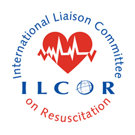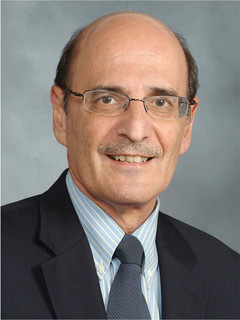Dr. Perlman is a Professor of Pediatrics and Director of Newborn Medicine at Weill Cornell, New York Presbyterian Hospital has made outstanding contributions to resuscitation research, to evidence-based resuscitation guidelines, to educational programs, to innovative use of technology, and to our collective endeavor in resuscitation as a champion of diversity and a role model for sustained leadership.
Dr. Perlman first joined the American Academy of Pediatrics’ (AAP) Neonatal Resuscitation Program (NRP) Steering committee in 1997 and has continuously guided resuscitation science, education, and leadership endeavors over the past quarter-century. His service to the AHA began in 1999 when he served as an expert and resource for the AHA Evidence Based Evaluation Conference on Neonatal Resuscitation and has been continuous since then. He was co-chair of the Neonatal Section of ILCOR starting in 2003, leading 32 international experts, which resulted in the 2005 Consensus on Science. He again co-led the Neonatal Section of ILCOR 2006-2010, a working group of 34 international experts, which produced the Consensus on Science 2010. For a third 5-year period he co-led the Neonatal Section of ILCOR 2011-2015, working with 45 International experts and was the lead author on the Consensus on Science and Treatment Recommendations and the Neonatal Guidelines document in 2015. In the ensuing years, he continued to work as a Neonatal Task Force member for the Neonatal ILCOR group and to mentor junior members of the group. In 2021, he serves as an inaugural emeritus member of the Task Force.
Dr Perlman’s interest in neonatal resuscitation grew out of his interest in neonatal birth asphyxia and his early training in neonatal neurology- a new field at the time. He has been prescient in his early commitment to evidence-based guidelines, his embracing the value of simula tion and teamwork in clinical application, and the expansion of efforts beyond the United States by developing working relationships with Resuscitation Councils worldwide and global programs adapted to low-resource settings. His efforts in global programs have been in addition to his consistent involvement with the US AAP NRP since 1997 and ILCOR since 2001.
The most substantial contribution to CPR that Dr Perlman has made has been his seminal leadership of the initial Neonatal ILCOR group in performing evidence reviews of resuscitation science, shepherding a diverse group of experts interested in the task. He has been a gentle but demanding taskmaster in the creation of a body of work that fulfills high standards of scientific clarity and uncompromising integrity. He has shown particular skill at developing consensus from controversy. He has always been attentive to including both men women from diverse backgrounds, races, ethnicities, and areas of the world. He systematically paired younger professionals with more seasoned individuals to develop expertise and leadership potential.
Dr Perlman has authored at least 70 among 200 plus peer reviewed papers on neonatal resuscitation, including more than 20 studies in low-resource settings. In recognition of his expertise, he has been invited to write more than fifteen chapters or papers on resuscitation topics. Dr Perlman’s contributions to the field have included innovative approaches in detecting heart rate early and accurately. He cooperated and supported the development of sophisticated and simple neonatal manikins for simulation training. He has recently in conjunction with the AAP HBS program piloted “Virtual HBB”, a virtual training program for Helping Babies Breathe, an educational innovation which he is evaluating for effectiveness in South Africa.
His landmark contribution has been the implementation of educational programs in limited resource settings. In close collaboration with the Ministry of Health in Tanzania, he spearheaded the first large-scale implementation of Helping Babies Breathe in a network of facilities across Tanzania with the audacious goal of reducing birth asphyxia mortality nationally. This work demonstrated a 47% reduction in neonatal death in the first 24 hours of life and a 24% reduction in fresh stillbirth. His efforts have been sustained by his patient and persistent efforts in creating, implementing, guiding, and scientifically validating resuscitation programs in several low-resource areas of the world. He is particularly attentive to meaningful involvement of local people, showing great respect for their efforts.
Jeff has furthered the goal of improving outcomes of newborn babies by his encouragement of broad and inclusive participation of investigators, educators and clinicians, modeling respect for all contributions, and insisting on very high standards of scientific excellence and ethical integrity. He has supported funding efforts for neonatal resuscitation science via the development of the AAP NRP Grant Program.
Seldom does one encounter a person more dedicated, self-effacing, modest, insightful, and scientifically qualified than Jeff Perlman. His sustained leadership and exemplary service over this quarter century deserve recognition as a giant in our endeavor and as an aspirational model of human service.

